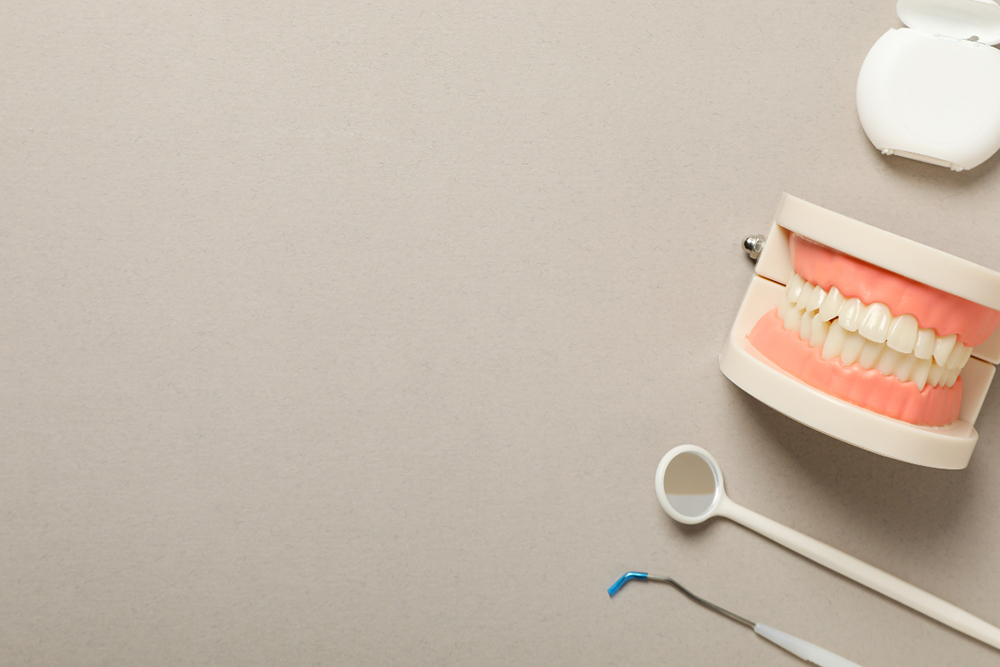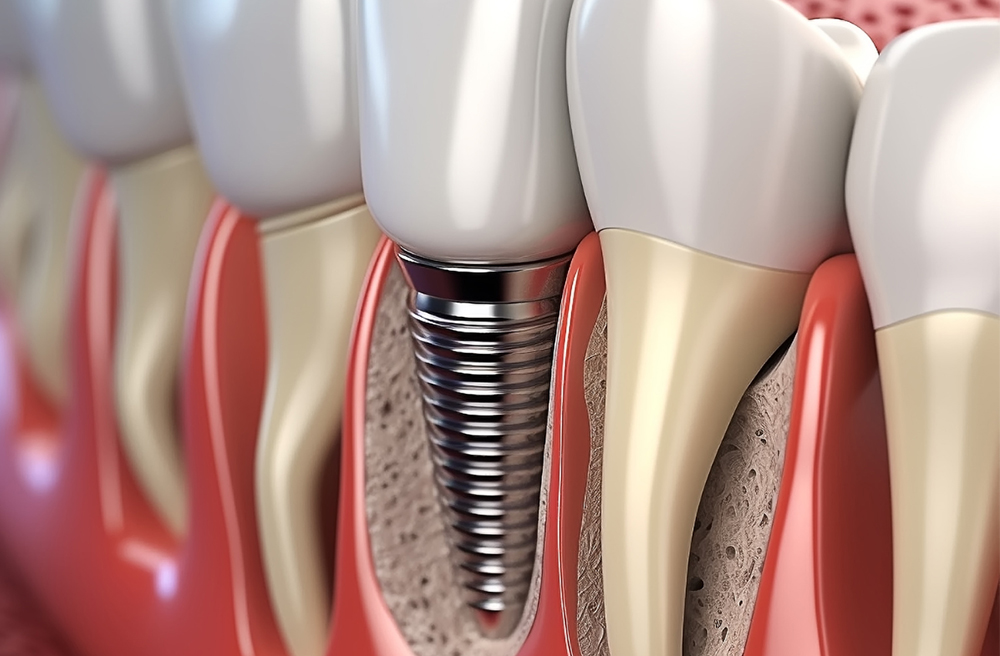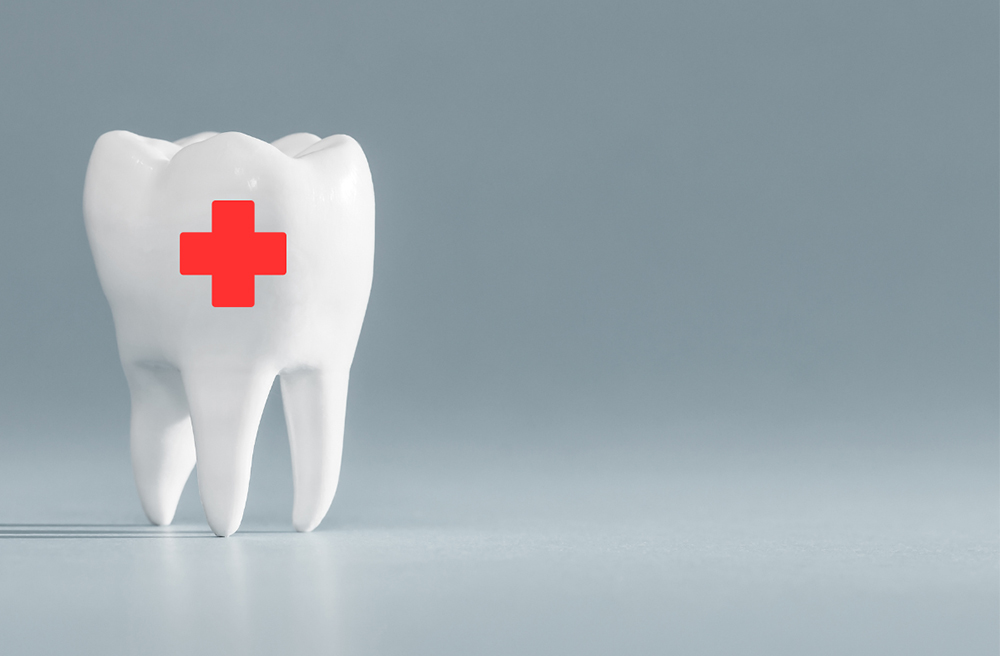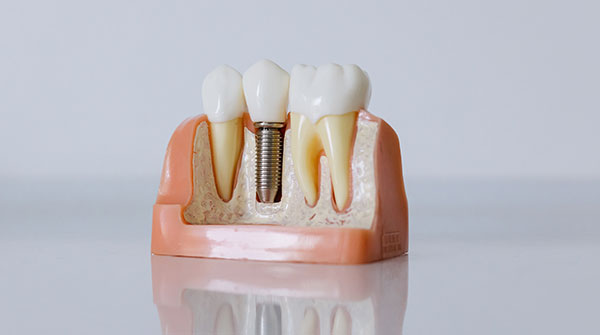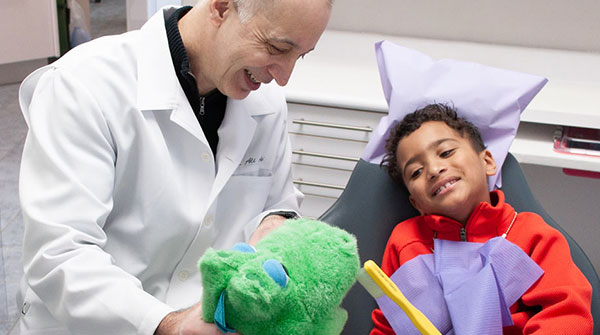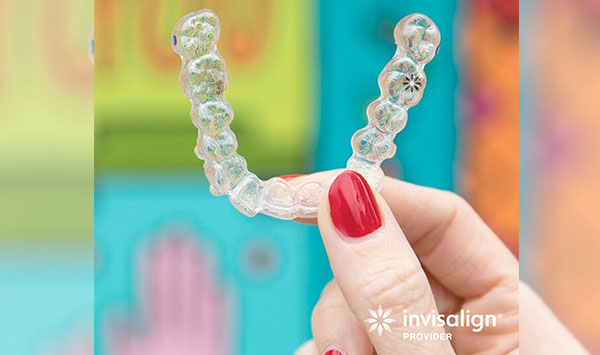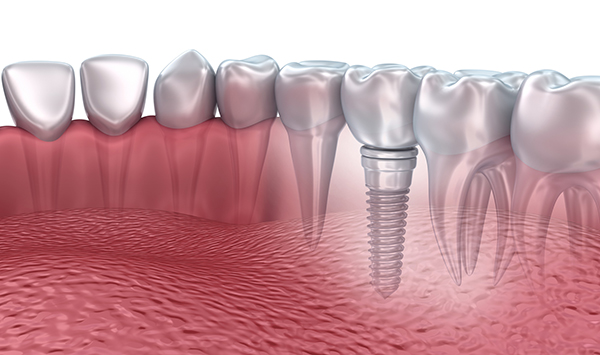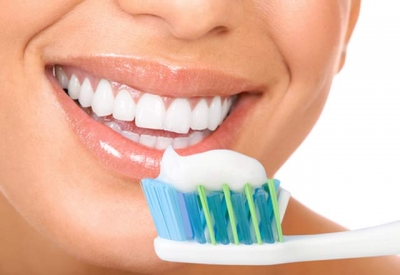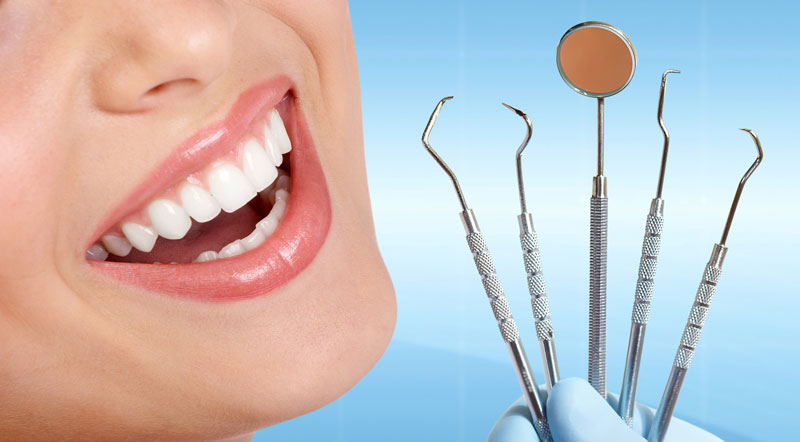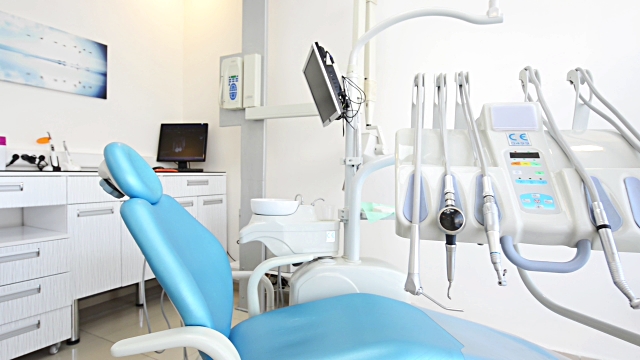Blog
Dental Implants Dentist: Single Tooth Replacement
February 22, 2026 / DENTISTRY
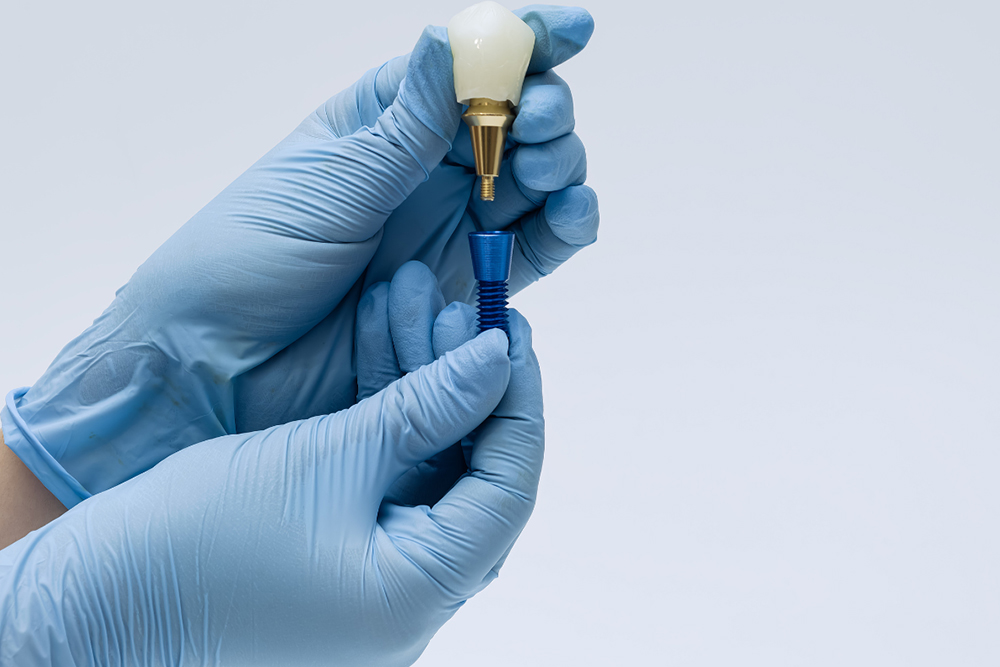
Single Tooth Implants: A Permanent Solution for a Missing Tooth
Losing a single tooth can feel devastating, whether from injury, decay, or other dental issues. The good news is that your dental implants dentist can restore your smile with a solution that looks and functions exactly like your natural tooth. At Napa Dental in Woodbridge, we specialize in single tooth implant procedures that provide permanent, beautiful results. Unlike bridges that require altering adjacent teeth, single implants preserve your healthy teeth while replacing the missing one.
Understanding the single tooth implant process helps patients feel confident about their treatment. Let's explore how a dental implants dentist restores individual teeth and what you can expect throughout your journey.
Why Choose a Single Tooth Implant?
When you lose a single tooth, you have several replacement options. However, dental implants offer distinct advantages that make them the preferred choice for most patients.
Benefits of single tooth implants:
- No impact on adjacent healthy teeth
- Prevents bone loss in the jaw
- Permanent solution that can last a lifetime
- Natural appearance and function
- Easy maintenance with regular brushing and flossing
- No dietary restrictions once healed
- Preserves facial structure and prevents shifting
Bridges require grinding down healthy adjacent teeth to serve as anchors. This irreversibly damages those teeth and may lead to future problems. Your dental implants dentist can avoid this by placing an implant that stands independently.
Partial dentures are removable and can be uncomfortable. They also don't prevent bone loss in the area of the missing tooth. Single implants provide stability and stimulate the jawbone just like natural tooth roots.
The Single Tooth Implant Procedure from a Dental Implants Dentist
Single tooth implant placement is a straightforward procedure performed in your dental implants dentist's office. Most patients are surprised by how comfortable the process is.
Step 1: Initial Consultation and Planning
Your journey begins with a comprehensive evaluation at Napa Dental. We examine your oral health, take digital X-rays, and use 3D imaging to assess your jawbone. This planning ensures optimal implant placement and long-term success.
We discuss your medical history and any medications you take. Certain conditions require special considerations, but most patients are excellent candidates for single tooth implants.
Step 2: Implant Placement Surgery
The surgical procedure typically takes 60–90 minutes. Your dental implants dentist uses local anesthesia to ensure complete comfort during the procedure. Sedation options are available for anxious patients.
A small incision is made in the gum tissue to access the jawbone. A precise hole is drilled to accommodate the titanium implant post. The implant is carefully placed and the gum tissue is sutured closed.
Most patients report minimal discomfort during the procedure. You can return home the same day with detailed aftercare instructions.
Step 3: Healing and Osseointegration
After implant placement, a healing period of 3–6 months is necessary. During this time, the implant fuses with your jawbone through a process called osseointegration. This biological bonding creates a strong, stable foundation for your replacement tooth.
Your dental implants dentist may provide a temporary tooth replacement during healing. This maintains your appearance and function while the implant integrates.
Step 4: Abutment Placement
Once osseointegration is complete, a small connector piece called an abutment is attached to the implant. This minor procedure may require local anesthesia. The abutment protrudes through the gum tissue and serves as the anchor for your crown.
Some healing time (1–2 weeks) is needed after abutment placement. The gum tissue forms naturally around the abutment during this period.
Step 5: Crown Fabrication and Placement
The final step involves creating and placing your custom crown. Your dental implants dentist takes detailed impressions of your teeth. These impressions are sent to a dental laboratory where skilled technicians craft your crown.
The crown is designed to match your natural teeth in size, shape, and color. When ready, it's securely attached to the abutment. The result is a replacement tooth that's virtually indistinguishable from your natural teeth.
Healing Timeline for Single Tooth Implants
Understanding the healing timeline helps patients plan accordingly. While individual experiences vary, most patients follow a similar schedule.
Immediate post-surgery (Days 1–7):
- Mild discomfort managed with over-the-counter pain medication
- Some swelling and minor bleeding are normal
- Soft food diet recommended
- Avoid disturbing the surgical site
Early healing (Weeks 2–4):
- Discomfort subsides significantly
- Swelling resolves completely
- Gradual return to normal diet
- Sutures dissolve or are removed
Osseointegration period (Months 3–6):
- Implant fuses with jawbone
- No discomfort during this phase
- Regular checkups with your dental implants dentist
- Temporary tooth replacement if needed
Final restoration (Month 6+):
- Abutment placement and brief healing
- Crown fabrication and placement
- Complete restoration of function and appearance
At Napa Dental, located at 75 Napa Valley Avenue in Woodbridge, we monitor your healing closely. Regular checkups ensure everything progresses as expected.
Crown Placement: The Final Touch from Your Dental Implants Dentist
The crown is the visible part of your implant restoration. Your dental implants dentist ensures it matches your natural teeth perfectly.
Crown material options:
- Porcelain (most natural appearance)
- Porcelain-fused-to-metal (strength and aesthetics)
- Zirconia (extremely durable and natural-looking)
Porcelain and zirconia crowns are most popular for front teeth due to their translucent, tooth-like appearance. Your dental implants dentist will recommend the best material based on the tooth's location and your specific needs.
The crown is either cemented or screwed onto the abutment. Screw-retained crowns allow for easier removal if future maintenance is needed. Cement-retained crowns provide excellent aesthetics with no visible screw access hole.
Caring for Your Single Tooth Implant
Single tooth implants require the same care as natural teeth. Proper maintenance ensures your implant lasts for decades.
Daily care routine:
- Brush twice daily with a soft-bristled toothbrush
- Floss daily around the implant crown
- Use non-abrasive toothpaste
- Rinse with antimicrobial mouthwash if recommended
Professional care:
- Visit your dental implants dentist every six months
- Professional cleanings remove buildup
- Regular X-rays monitor bone levels
- Early detection of any issues
Avoid using your implant to bite extremely hard objects. While implants are strong, excessive force can damage the crown or surrounding bone.
Success Rates and Long-Term Outcomes
Single tooth implants have excellent success rates. Studies show success rates of 95–98% over 10 years when placed by an experienced dental implants dentist.
Factors affecting success:
- Adequate bone density and volume
- Good oral hygiene habits
- Non-smoking status
- Regular dental visits
- Overall health status
At Napa Dental, we use advanced techniques and high-quality materials to maximize success rates. Our experience with single tooth implants ensures optimal outcomes for our patients.
Schedule Your Single Tooth Implant Consultation
Missing a single tooth doesn't mean you have to live with a gap in your smile. Contact Napa Dental today at 905-893-8939 to schedule your consultation. Your dental implants dentist will evaluate your situation and create a personalized treatment plan.
Our convenient Woodbridge location offers flexible scheduling, including evening and Saturday appointments. Let us help you restore your smile with a permanent, natural-looking solution that will last for years to come.
Family Dentist Preventive Care for All Ages
January 22, 2026 / DENTISTRY

When Dental Trauma Strikes, Every Minute Counts
When dental trauma strikes, every minute counts for successful tooth reimplantation. As an emergency dentist in Woodbridge, I understand that knocked-out teeth represent one of the most urgent dental situations requiring immediate professional intervention. Proper emergency response can mean the difference between saving a natural tooth and requiring permanent replacement.
Why Choose an Emergency Dentist for Dental Trauma
Dental trauma requires specialized knowledge and immediate action that only an emergency dentist can provide. Successful tooth reimplantation depends on professional assessment, proper handling techniques, and advanced treatment protocols.
An experienced emergency dentist has the necessary equipment and expertise to evaluate root damage, assess bone fractures, and determine the best treatment approach. Immediate professional care significantly increases the chances of successful tooth preservation.
Emergency Dentist Tooth Reimplantation Services
Immediate Assessment and Stabilization
When patients arrive with knocked-out teeth, an emergency dentist performs a comprehensive trauma assessment. This includes examining the tooth, socket, surrounding tissues, and potential jaw injuries. Digital X-rays help identify root fractures, bone damage, and proper tooth positioning to ensure accurate treatment planning.
Professional Tooth Handling Protocols
An emergency dentist follows strict protocols for handling avulsed teeth to maximize reimplantation success. The tooth is gently rinsed with sterile saline to remove debris without damaging root surface cells. The emergency dentist then evaluates root surface integrity and periodontal ligament viability to determine whether immediate reimplantation is appropriate.
Emergency Dentist Treatment Procedures
Socket Preparation and Cleaning
Before reimplantation, an emergency dentist carefully cleans and prepares the tooth socket. This involves removing blood clots, debris, and damaged tissue while preserving healthy bone. Local anaesthesia ensures patient comfort, and sterile saline irrigation creates optimal healing conditions.
Tooth Positioning and Stabilization
The emergency dentist gently repositions the tooth into its original socket using controlled pressure. Proper alignment is critical for healing and long-term success. Flexible splinting materials are then used to stabilize the tooth while allowing natural movement during recovery.
Emergency Dentist Follow-Up Care Protocols
Monitoring and Ongoing Assessment
After reimplantation, an emergency dentist schedules regular follow-up visits to monitor healing. These appointments may include clinical exams, X-rays, and pulp vitality testing. Early detection of complications such as infection or root resorption significantly improves outcomes.
Root Canal Therapy Considerations
In many cases, an emergency dentist recommends root canal therapy following reimplantation. This prevents infection and preserves the tooth structure. Timing depends on factors such as patient age, time the tooth was outside the mouth, and root development stage.
When to Seek Emergency Dentist Care Immediately
Time-Critical Situations
Knocked-out permanent teeth should be treated by an emergency dentist within 30 minutes for the best chance of success. Even teeth that have been out longer may still be reimplanted with prompt professional care.
Signs Requiring Urgent Care
Loose, displaced, or partially knocked-out teeth also require immediate attention. Trauma involving bleeding, facial swelling, severe pain, or multiple teeth should always be evaluated by an emergency dentist, as these may indicate more serious injuries.
Emergency Dentist Prevention and Education
Protective Equipment Recommendations
An emergency dentist strongly recommends custom-fitted mouthguards for contact sports and high-risk activities. These provide significantly better protection than store-bought options and help prevent serious dental injuries.
Emergency Response Training
Knowing how to respond before reaching an emergency dentist can dramatically improve outcomes. Proper handling of a knocked-out tooth, correct storage methods, and immediate action are critical. Parents, coaches, and caregivers should understand these protocols to protect dental health in emergencies.
At Napa Dental, we understand that dental trauma can be frightening and painful. Our experienced team provides immediate, professional care focused on saving natural teeth whenever possible. Remember, time is critical. Contact an emergency dentist immediately when dental trauma occurs.
Archive




